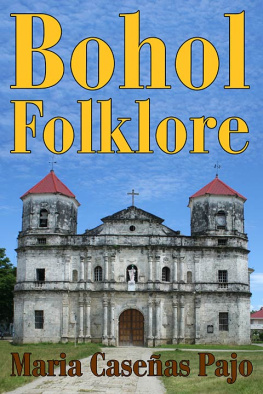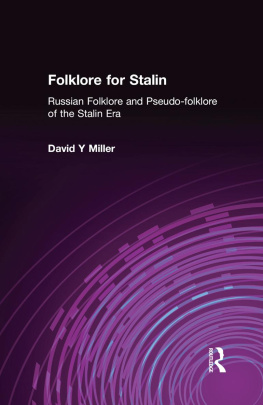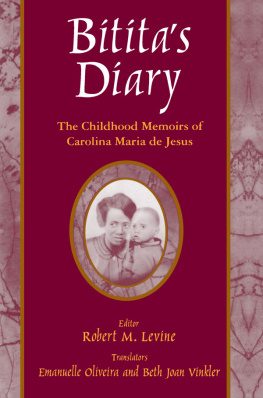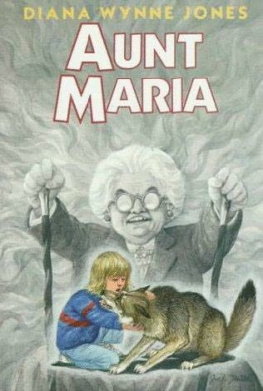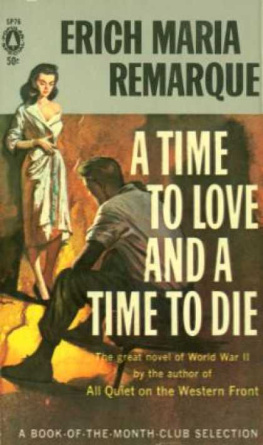Maria Caseñas Pajo - Bohol Folklore
Here you can read online Maria Caseñas Pajo - Bohol Folklore full text of the book (entire story) in english for free. Download pdf and epub, get meaning, cover and reviews about this ebook. publisher: University of San Carlos, Cebu, genre: Detective and thriller. Description of the work, (preface) as well as reviews are available. Best literature library LitArk.com created for fans of good reading and offers a wide selection of genres:
Romance novel
Science fiction
Adventure
Detective
Science
History
Home and family
Prose
Art
Politics
Computer
Non-fiction
Religion
Business
Children
Humor
Choose a favorite category and find really read worthwhile books. Enjoy immersion in the world of imagination, feel the emotions of the characters or learn something new for yourself, make an fascinating discovery.
- Book:Bohol Folklore
- Author:
- Publisher:University of San Carlos, Cebu
- Genre:
- Rating:4 / 5
- Favourites:Add to favourites
- Your mark:
- 80
- 1
- 2
- 3
- 4
- 5
Bohol Folklore: summary, description and annotation
We offer to read an annotation, description, summary or preface (depends on what the author of the book "Bohol Folklore" wrote himself). If you haven't found the necessary information about the book — write in the comments, we will try to find it.
Bohol Folklore — read online for free the complete book (whole text) full work
Below is the text of the book, divided by pages. System saving the place of the last page read, allows you to conveniently read the book "Bohol Folklore" online for free, without having to search again every time where you left off. Put a bookmark, and you can go to the page where you finished reading at any time.
Font size:
Interval:
Bookmark:

In Partial Fulfillment of the Requirements for the Degree Master of Arts in English
Maria Gaseas Pajo
There are, generally speaking, two opinions about the Boholanos. The first opinion is one of praise for the Boholanos. They are called the Ilocanos of the South because of their daring and pioneering, their industry and thrift, their modesty and hospitality, their conservatism and hardihood.
The second opinion is one of contempt and humiliation for the Boholanos. They are despised and laughed at; they are even made the target of jokes and anecdotes just because they are simple, peaceful, silent and unassuming people. Their thrift is misconstrued for tightfistiness and selfishness; their simplicity and modesty is mistaken for ignorance and stupidity and old-fashionedness; and their hospitality is taken for mere pretense and display.
The first opinion is based upon actual contact with Boholanos in their own homes in Bohol and of Boholanos elsewhere in the archipelago for a certain length of time.
The second opinion seems to have been based upon hearsay and upon certain peculiarities displayed by Boholano peddlers who visit other provinces and cities of the Philippines. This conclusion has been made after a limited observation only and upon one class of Boholanos, the peddlers, who do not represent the true Boholano. Because of this conflicting opinion, it is an obligation of a true Boholano to make a survey of its past, and of its folklore in order to support the first opinion.
Statement of the problem. It is the purpose of this study (1) to attempt a survey of Boholano Folklore for this has never been tried so far; (2) to find out if Bohol is really a fertile field for folklore as has been claimed; (3) to make a collection of folklore to be read and to be enjoyed for its own sake; (4) to find how much folklore has influenced the lives of the people as revealed through observation and study; (5) to collect folktales and other folkloristic data of Bohol in order to help provide materials for such comparative studies, since the present materials are still insufficient; (6) to record in writing oral literature of our own native dialect into English; and (7) to point out the literary and educational value of Boholano folklore.
Importance of the study. The habit, of telling stories
First, folklore was used as a recreative device in school and home, simply for amusement and individual entertainment.
Second, folklore has been the means of approach to a study of the mind of ancient peoples and to the acquisition of scientific information regarding the past history of the people of a certain land. Through an analysis of folklore, it is possible to trace the history of a civilization or
Third, folklore is important for it has shaped behavior, transmitted laws, customs, and traditions; gave mental relief and entertainment; fostered appreciation for arts; glorified sterling qualities like the beauty of loyalty and hospitality and other sterling qualities; fired the hearts of the young with a noble ambition to excel their fathers or heroes in fortitude and valor; and instructed the youth as a book, magazine, motion picture, drama, lecture, sermon, all condensed into a single personality.
Fourth, folklore is an appreciation-fostering device. Our likings are as important as our knowings. Our appreciations and aversions, our desires and disgusts, are the supreme potencies in character education. Sensing good literature and liking good literature come only from exposure to good literature. One should not forget that our Great Teacher, used the parable as a vehicle of truth. His hearers remembered His stories better than His sermons. In method, any device would do well to follow in the steps of the Master Teacher.
Folklore, therefore, when well-chosen and wisely selected will develop in a child a taste for the good and an aversion for the bad; attitude of altruistic emotions, aesthetic emotions, and moral emotions, are all worked and established by folklore.
Lastly, folklore is a conduct-governing device. To modify conduct is one of the oldest conscious purposes of folklore. It has stood the teats of time and of various conditions.
Professor Beyer of the University of the Philippines emphasized the study of folklore as having two distinct objects:
First, the history of popular literature and the literary development which it contains; second, as an aid to the ethnological study of a group of people for determining the history of their culture and migrations.
Folklore. The word folklore was adopted in the middle of the nineteenth century by European scholars engaged in the study of popular literature. The literal meaning is simple lore or knowledge of the folk or people. For its original form, folklore referred to oral knowledge which was preserved for many years among illiterate masses of civilized countries but now, it refers to all peoples irrespective of whether they have a written language or not. It therefore includes traditions, customs, beliefs, tales, riddles, proverbs, legends, myths, poetry, folk songs, and folk dances. Therefore, folklore is a total mass of traditional matter in prose and poetry, in music and arts, in the minds of a given people at a given time. Folklore is not something far away and long ago, but real and living among us.
Here the past has something to say to the present and the bookless world to a world that likes to read about itself, concerning our basic oral and democratic culture as the roots of the arts and as a side light on history.Folklore is the scholars word for something that is simple and natural as singing songs and spinning yarns among the folk who know the nature and the meaning but not the name of folklore.
The essence of folklore is something that cannot be contained in a definition but that grows upon with folklore experiences like old songs, stories, sayings, beliefs, customs, and practices; in brief, the mind skills and the hand skills that have been handed down so long that they seem to have a life of their own, a life that cannot be destroyed by print.
Myths. A myth is an imaginative explanation or interpretation by man of himself or of the objectives and events in nature outside of himself, including their appearance, their effect, and the still greater mystery of their causes. It may relate a historical event which will serve to explain some practice, belief, institution, or natural phenomenon. It is associated with religious beliefs and rites. It is always counted as part of religion. It is a sort of sacred literature of man. In brief, it discloses mans scientific spirit, his religious nature, and his philosophy of life. The myth is considered not merely as a vehicle of truth but truth itself; its brief characters are deities with heroes, common mortals, and animals in subordinate roles.
Legends. A legend is any story coming from the past which may be historical in character but cannot be proved as such, or may be a fictitious story in which the characters are human beings or humanized animals. The hero of a legend by his wit, skill, or energy, or by the lack of these abilities, performs deeds that are either marvelous or amusing. The hero may be a humble shepherd or an ancestor, or he may be a. fool of the family, or he may be a
Font size:
Interval:
Bookmark:
Similar books «Bohol Folklore»
Look at similar books to Bohol Folklore. We have selected literature similar in name and meaning in the hope of providing readers with more options to find new, interesting, not yet read works.
Discussion, reviews of the book Bohol Folklore and just readers' own opinions. Leave your comments, write what you think about the work, its meaning or the main characters. Specify what exactly you liked and what you didn't like, and why you think so.

